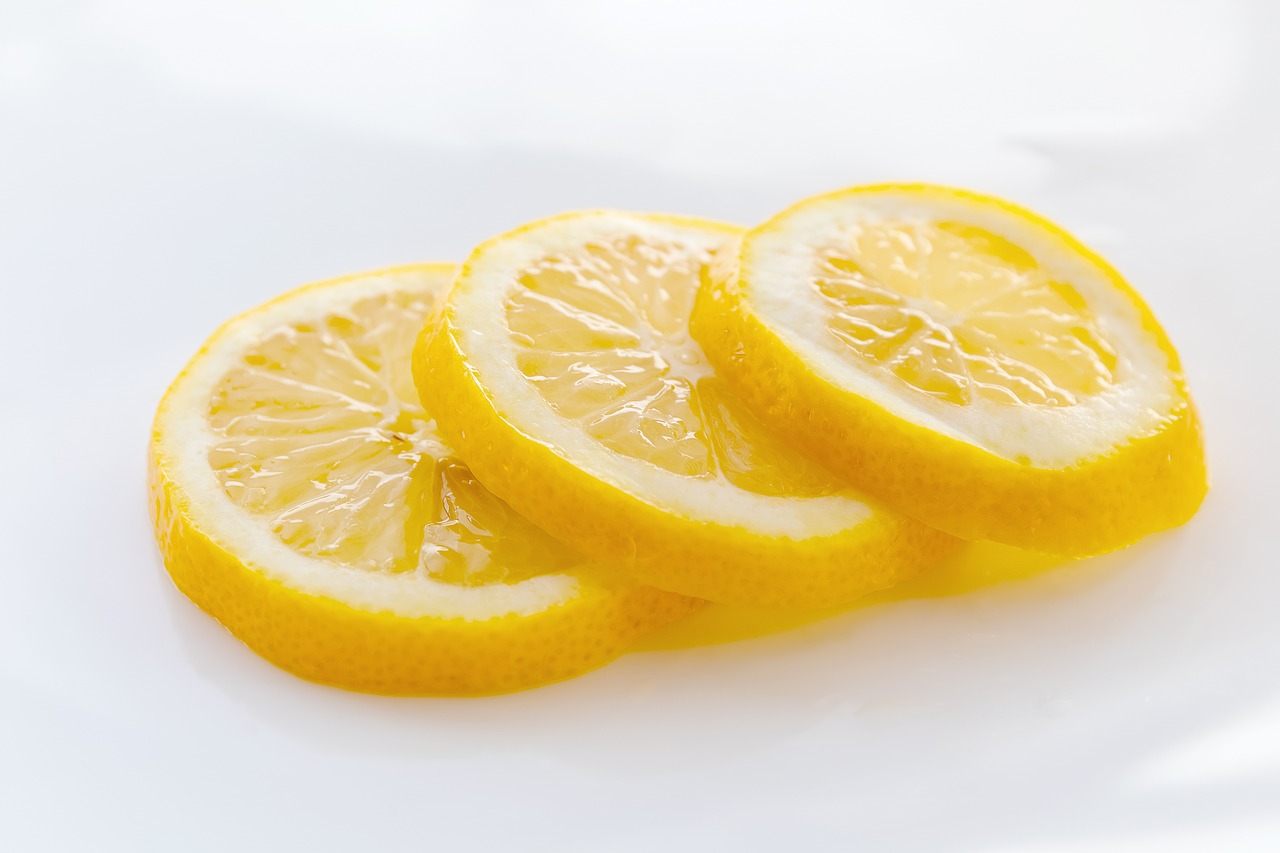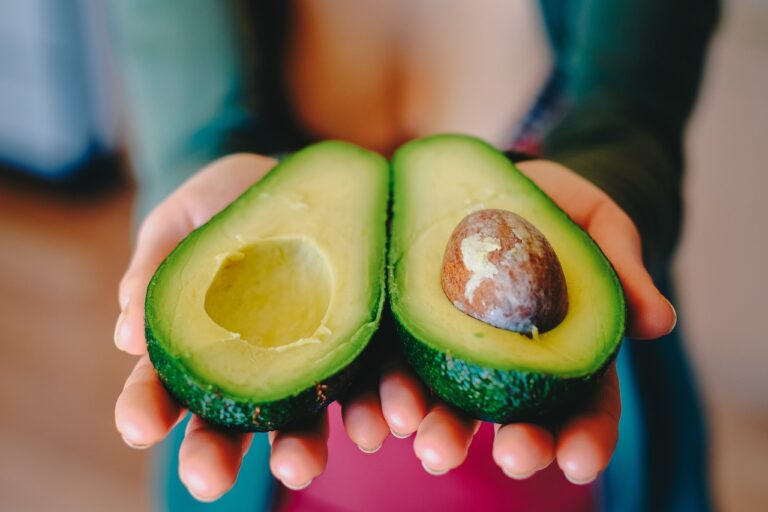Here Are 10 Reasons Why You Are Craving Lemons

Lemons, with their bright yellow hue and zesty taste, often captivate our taste buds. But have you ever wondered why you might be craving this particular citrus fruit? Let’s explore 10 possible reasons behind this intriguing desire.
Why Am I Craving Lemons?
1. Vitamin C Deficiency
Lemons are rich in vitamin C, a vital nutrient that supports immune function and promotes healthy skin. When our bodies are lacking in this essential vitamin, we might find ourselves gravitating towards foods that are high in vitamin C content, such as lemons. The body’s natural inclination to seek out sources of vital nutrients could be one of the reasons behind the craving.
Vitamin C also aids in the absorption of iron, a mineral crucial for oxygen transport in our blood. A deficiency in vitamin C might hinder iron absorption, leading to fatigue and weakness. Thus, craving lemons could be a subtle hint from our bodies to replenish our vitamin C stores.
2. Digestive Health
The citric acid in lemons can help stimulate the production of stomach acids, aiding in digestion. People with low stomach acid may unknowingly crave lemons as a way to bolster their digestive processes. This can lead to better breakdown of foods and overall improved gut health.
Furthermore, lemons are also known to have a mild laxative effect. Individuals experiencing constipation or irregular bowel movements might find relief after consuming lemons or lemon-infused water, which can be another reason for the craving.
3. Alkalizing Effect
Despite their acidic nature, lemons have an alkalizing effect on the body once metabolized. Maintaining an alkaline environment can help prevent the buildup of harmful acids and promote overall well-being. If our body is too acidic, craving lemons could be a natural way to balance our internal pH levels.
Alkalizing foods can also support detoxification processes. By supporting liver function and aiding in the elimination of toxins, lemons can play a crucial role in our body’s natural detox system.
4. Hydration Needs
Dehydration can lead to a range of symptoms from dry skin to headaches. Lemons, especially when added to water, can make the process of rehydration more enjoyable. This refreshing combination might be what our body is signaling for when we’re in need of hydration.
Moreover, the electrolytes found in lemons, such as potassium, can help maintain fluid balance and replenish lost minerals, making them an ideal choice for rehydration after physical exertion.
5. Mood Enhancement
Certain studies suggest that the scent of lemon can have mood-enhancing properties. Our body might crave lemons when we’re feeling down or stressed, seeking a natural uplift. The vibrant color and zesty scent of lemons can provide a quick sensory pick-me-up.
Additionally, the vitamin C in lemons also plays a role in producing neurotransmitters like serotonin, which regulates mood. A lack of these neurotransmitters can lead to feelings of sadness or depression, further explaining the craving.
6. Pregnancy
Pregnant women often experience unique cravings, and lemons are no exception. These cravings can be attributed to hormonal changes or the body’s need for certain nutrients. While the exact reason remains a mystery, it’s not uncommon for pregnant women to desire sour or tangy flavors like those of lemons.
Furthermore, lemons can help alleviate some common pregnancy symptoms such as nausea or morning sickness, making them a desirable choice during this period.
7. Desire for Cleansing
The cleansing properties of lemons are well-documented. They can assist in detoxifying the liver and purifying the blood. An internal desire for cleansing might manifest as a craving for this citrus fruit, especially after indulging in heavy or processed foods.
By incorporating lemons into our diet, we can promote the body’s natural detoxification processes, ensuring that harmful toxins are efficiently eliminated.
8. Flavor Enhancement
Sometimes, our body craves lemons simply because of their ability to enhance flavors. Lemons can elevate the taste of both sweet and savory dishes, making them more palatable. This can be particularly true when we feel our meals are bland or lacking in zest.
Incorporating lemons can also reduce the need for excess salt or sugar in our recipes, paving the way for healthier culinary choices.
9. Weight Management
Lemons can be a great ally in weight management. They can help boost metabolism, promote satiety, and reduce appetite. Those seeking to maintain or reduce their weight might find themselves reaching for lemons, even subconsciously, as a way to support their weight loss goals.
Furthermore, lemon-infused water can serve as a low-calorie beverage alternative, reducing the intake of sugary drinks and aiding in weight management.
10. Skin Health
The antioxidants in lemons, especially vitamin C, play a key role in promoting skin health. They can combat free radicals, preventing premature aging and promoting a radiant complexion. A desire for better skin health might lead to increased lemon consumption.
Topical application of lemon juice can also aid in brightening the skin and reducing blemishes. However, it’s essential to be cautious, as lemon juice can be photosensitive, and exposure to the sun after application can lead to skin damage.
Craving Bitter Lemon
A craving for bitter lemon can signify a desire for a refreshing and invigorating taste, often linked to the body’s need for vitamin C and antioxidants. These cravings can also reflect a psychological need for stimulation, as the sharp, tart flavor awakens the senses and can improve mood. Bitter lemons, rich in nutrients, can boost the immune system and aid digestion.
Incorporating bitter lemon into one’s diet can be easily achieved through lemon-infused water, dressings, or marinades, providing a healthy way to satisfy these cravings. It’s also a reminder to stay hydrated, especially in warmer climates or during physical activity, where such cravings might increase. Understanding these cravings can help in making conscious dietary choices that support overall well-being.
Craving Lemon And Ice
Craving lemon and ice is often a sign of seeking cool relief, combined with the zesty flavor of lemon, which can be particularly appealing during hot weather or when experiencing dehydration. This combination is not only refreshing but also stimulates the digestive system, helping to alleviate nausea or indigestion. The sharp taste of lemon paired with the cold sensation of ice can provide a sensory experience that satisfies specific cravings.
To fulfill this craving, consider homemade lemonade with ice, or freeze lemon juice in ice cube trays for a concentrated flavor boost. This craving could also hint at the body’s intuitive need for increased fluid intake and electrolytes, which are essential for hydration and energy. Listening to this craving by choosing healthy options can contribute to maintaining a balanced diet and hydration levels.
Craving Lemon And Salt During Pregnancy
Craving lemon and salt during pregnancy is a common phenomenon, attributed to hormonal changes that alter taste preferences and the body’s increased need for certain nutrients. The combination of lemon’s tanginess and salt’s savory flavor can satisfy specific taste buds, also helping to manage morning sickness and enhance hydration. Pregnant women may find this craving as a way to cope with nausea, as the strong flavors can have a soothing effect.
Incorporating lemon and salt into the diet should be done cautiously, especially regarding salt intake, to avoid excessive sodium. Options like lightly salted lemon slices or adding lemon and a pinch of salt to water can be healthier ways to satisfy these cravings. Consulting with a healthcare provider about cravings and dietary changes during pregnancy is always advisable to ensure both the mother’s and baby’s health.
Craving Lemon And Vinegar
Craving lemon and vinegar suggests a preference for acidic and sour flavors, which can stimulate appetite and aid digestion. This combination may indicate the body’s need for acetic acid and citric acid, both known for their detoxifying properties and ability to improve metabolic health. The acidity of lemon and vinegar is believed to balance the body’s pH levels, promoting better health.
Incorporating these ingredients into salads as dressings or into marinades for meats and vegetables can be an excellent way to satisfy these cravings while adding a burst of flavor to meals. It’s also beneficial for those looking to enhance their weight management efforts, as both lemon and vinegar have been associated with increased satiety and reduced calorie intake. However, moderation is key, as excessive consumption of acidic foods can affect dental health and digestion.
Craving Lemon Before Period
Craving lemon before a period is a common experience among many women, linked to premenstrual syndrome (PMS) and the body’s fluctuating hormone levels. The desire for lemon’s sour taste can be a body’s way of seeking comfort and relief from PMS symptoms, such as bloating and fatigue. Lemons, being high in vitamin C, can also support the immune system during this time, when women may feel more vulnerable to stress and illness.
To manage this craving, incorporating lemon in water, teas, or salads can provide the desired taste without excessive sugar intake, often associated with other PMS cravings. This natural approach can help maintain a balanced diet and mitigate some of the discomforts associated with the menstrual cycle. Acknowledging and understanding these cravings can empower women to make mindful dietary choices that support their well-being throughout their cycle.
Craving Lemon Cake
Craving lemon cake can symbolize a longing for comfort and indulgence, with its sweet yet tangy flavor offering a satisfying sensory experience. This craving might also reveal a deeper need for energy or a mood boost, as the combination of sugar and citrus can elevate serotonin levels, contributing to feelings of happiness and satisfaction. Lemon cake, with its bright flavor, often evokes memories of spring and summer, bringing a sense of warmth and nostalgia.
Indulging in lemon cake can be a delightful treat, but for those mindful of their health, exploring lighter versions or lemon-flavored desserts with reduced sugar can fulfill the craving without compromising nutritional goals. Baking homemade lemon cake allows for control over ingredients, making it possible to enjoy this treat while still adhering to dietary preferences. It’s a reminder that cravings can also be opportunities to practice creativity and moderation in the kitchen.
Craving Lemon Curd
The craving for lemon curd can be attributed to its rich, creamy texture combined with the intense, tangy flavor of lemon, offering a luxurious taste experience. This desire often points to a need for comfort and sensory pleasure, as lemon curd’s smoothness and acidity engage the taste buds in a unique way. It’s also a way to satisfy a sweet tooth with a flavor that is both indulgent and refreshing.
Lemon curd can be enjoyed in various ways, from spreading it on toast or scones to incorporating it into desserts, providing versatility in how one can satisfy this craving. For those looking to balance indulgence with health, there are lighter recipes available that reduce sugar and substitute healthier fats without compromising on taste. Embracing this craving can inspire culinary exploration, finding new and creative ways to enjoy the richness of lemon curd.
Craving Lemon Flavored Things
A craving for lemon-flavored things reflects a desire for the refreshing and invigorating qualities that lemon brings to food and drinks. This craving can indicate a need for a palate cleanse or a boost in vitamin C intake, essential for immune function and skin health. Lemon’s bright and zesty flavor can enhance the taste of water, making hydration more appealing, which is crucial for overall health.
Incorporating lemon flavor into the diet through lemon zest in cooking, lemon-flavored teas, or even lemon-scented cleaning products can satisfy this craving while invigorating the senses and home. It’s a reminder of the versatile nature of lemon, capable of bringing a fresh and clean taste to a wide array of dishes and beverages. Embracing this craving can lead to healthier lifestyle choices, prioritizing hydration and the enjoyment of natural flavors.
Craving Lemon Peel
Craving lemon peel specifically can highlight an interest in the bitter yet aromatic components of lemon, which are concentrated in the peel. This craving might be the body’s way of seeking out bioflavonoids and essential oils found in the peel, known for their antioxidant and anti-inflammatory properties. Lemon peel can add depth and complexity to dishes, offering a unique culinary experience.
Using lemon peel in cooking or as a garnish can provide not only the health benefits but also an enhanced flavor profile to meals. It’s important to choose organic lemons when consuming the peel to avoid pesticides and wash them thoroughly. This craving encourages the exploration of culinary creativity, utilizing the whole fruit for its taste and health benefits, demonstrating a mindful approach to food and flavor.
Craving Lemons And Limes
Craving lemons and limes together suggests a desire for intensely sour and vibrant flavors, likely indicating a need for a refreshing taste or a boost in vitamin C. This combination can be particularly appealing in hot weather or as a way to stimulate the appetite. The acidity of these fruits can aid in digestion and act as a natural detoxifier, supporting liver health.
Incorporating lemons and limes into the diet through beverages like infused waters or limeade, or using them in cooking, can satisfy this craving while providing health benefits. It’s also a reminder of the importance of variety in fruit intake, as different fruits offer different nutrients and benefits. This craving can inspire the exploration of new recipes and flavors, enriching the dietary experience with vibrant tastes and healthful ingredients.
Craving Lemons And Pickles
Craving lemons and pickles simultaneously points to a strong preference for sour and tangy flavors, possibly indicating a need for electrolytes or hydration. Both lemons and pickles have high levels of sodium and potassium, essential for maintaining fluid balance in the body. This craving can also reflect a desire for foods that have probiotic or digestive benefits, as pickles are fermented and can support gut health.
Enjoying lemons and pickles in moderation can be a satisfying way to meet these cravings while also providing nutritional benefits. They can be incorporated into diets as part of salads, snacks, or as flavor enhancers in meals. It’s crucial, however, to be mindful of sodium intake, especially for those with blood pressure concerns. Embracing this craving allows for the exploration of flavors that not only satisfy taste buds but also contribute to a balanced and healthful diet.
Craving Raw Lemon
Craving raw lemon can indicate a desire for an intense, sour flavor experience, often linked to the body’s need for a refreshing taste or additional vitamin C. Eating raw lemon can also stimulate saliva production, aiding in digestion and providing a sense of relief from dry mouth or thirst. This craving might also suggest a psychological or emotional need for something that feels cleansing or purifying.
Consuming raw lemon, whether as slices, in water, or as a snack, can be a direct way to satisfy this craving while benefiting from its nutritional properties. However, it’s important to consider dental health, as the acid in lemon can erode tooth enamel over time. Balancing this craving with proper dental care and moderation can ensure that the benefits are maximized without adverse effects.
Sudden Craving For Lemons
A sudden craving for lemons can emerge from an immediate need for refreshment, detoxification, or an immune boost, given lemons’ high vitamin C content. Such cravings might also reflect underlying nutritional deficiencies or a body’s intuitive push towards balancing diet and hydration. The zest and brightness of lemons can lift spirits, making this craving also a psychological pursuit for a mood enhancer.
Responding to a sudden craving for lemons by incorporating them into drinks, meals, or as a snack can provide the body with essential nutrients while satisfying the craving. It’s an opportunity to listen to the body’s signals and address its needs through natural, wholesome choices. This craving can serve as a prompt to explore new ways to enjoy lemons, enriching one’s culinary repertoire and nutritional intake.
Why Am I Craving Lemons And Tomatoes
Craving lemons and tomatoes together could stem from a combination of physiological and psychological factors, such as a need for vitamin C, antioxidants, and other nutrients these foods are rich in. This craving may also signify a desire for refreshing and tangy flavors that stimulate the taste buds and provide a sense of satisfaction. Both lemons and tomatoes are known for their ability to enhance flavors in dishes, making this craving a potential indicator of a longing for more vibrant and lively meals.
To satisfy this craving, incorporating lemons and tomatoes into salads, sauces, or as part of a balanced snack can be both nourishing and fulfilling. This combination can also support hydration and skin health, thanks to the high water content and lycopene in tomatoes, coupled with the vitamin C in lemons. Understanding and responding to such cravings can lead to discovering new, enjoyable ways to include these healthful foods in the diet, promoting overall well-being.
Conclusion
While there are myriad reasons why one might crave lemons, it’s clear that this vibrant fruit offers numerous benefits. From aiding digestion and enhancing mood to promoting hydration and skin health, lemons prove to be more than just a tangy delight. Listening to our body’s signals and understanding the underlying reasons for our cravings can help us make informed decisions about our dietary choices. So, the next time you find yourself reaching for a lemon, embrace it, knowing that you’re catering to both your palate and your health.



